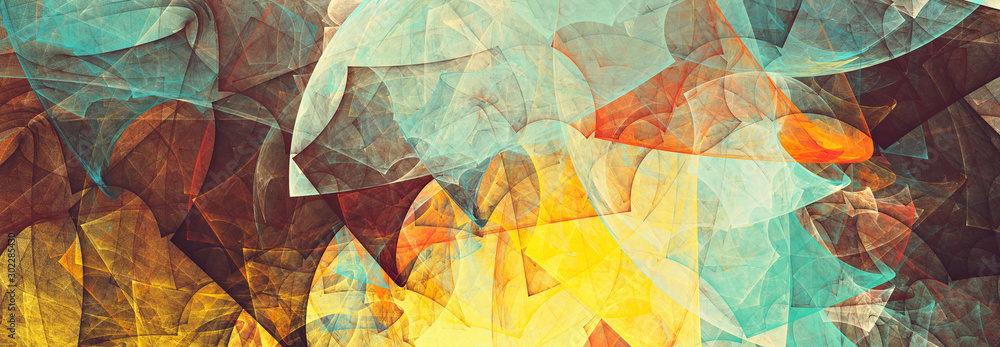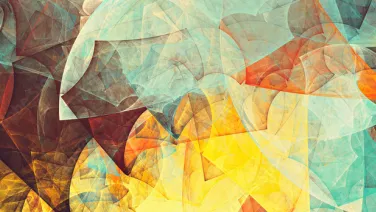
S2 2024 Honours Conference
It is time to celebrate our Honours students and see what they have been up to!
Event series
Content navigation
Description
We have 16 students who will present results of their Honours project. Each student will give a 25 minute talk followed by questions from the audience.
Speakers:
Saksham Aggarwal
Alexander Coombs
Jean-Paul Hii
Thomas Gell
Stanley Li
Reef Kiaeff
Corey DeWit
Clare Hong
Yue Huang
Kieran Lelis
Tushar Muralidharan
Arlo Taylor
Marcus Wong
Thomas Fearn
Adrian Lo
Jake Lyons
Schedule
09:20am
Local Averaging Estimators based on Persistent Homology Signatures
- Speaker: Saksham Aggarwal
Persistent homology signatures, namely persistence diagrams, have demonstrated themselves to be powerful topological summaries of data. We can construct local averaging regression estimators directly on the space of persistence diagrams. We will establish some basic theoretical results of such an estimator, specifically consistency results and bounds on the rate of convergence.
10:00am
Topological inference from point samples
- Speaker: Alexander Coombs
In this thesis we survey the literature on the problem of inferring the homology and homotopy type of an unknown compact subset $X$ of a Riemannian manifold from a Hausdorff approximating point sample $P$. We organise this treatment around feature sizes, which quantify the least scale of the topological features of $X$. For each feature size, we examine a topological inference result which upper-bounds the sufficient Hausdorff distance between $X$ and $P$ for homology inference, in terms of the feature size. After examining the case studies of homological feature size and reach, we study the theory of critical points for distance functions as a framework within which to relate feature sizes. Finally, having studied deterministic inference results, we study learning results where conditions on the number of samples necessary and sufficient for homology inference are studied via sampling results and minimax risk.
10:40am
Representation theory of $GL_2(\mathbb{F}_q)$: extension to $GL_n(\mathbb{F}_q)$ with applications to $SL_2(\mathbb{F}_q)$
- Speaker: Jean-Paul Hii
The main goal of this thesis is to construct the complex irreducible representations and the character table of the general linear group $GL_2(\mathbb{F}_q)$, where $q$ is a prime power. In the first half of this thesis, we will provide some introduction to key concepts of representation theory of finite groups such as characters, tensor products and induced representations. We will observe that there are two types of irreducible representations called parabolically induced representations and cuspidal representations. A key methodology in the representation theory of $GL_2(\mathbb{F}_q)$ is the Harish-Chandra philosophy of cusp forms and Mackey's theory, which makes use of representations of certain subgroups of $GL_2(\mathbb{F}_q)$ and inducing up to $GL_2(\mathbb{F}_q)$. In the second half of this thesis, we will see how the theory studied for $GL_2(\mathbb{F}_q)$ can be generalised to $GL_n(\mathbb{F}_q)$. We finish this thesis with a brief application of the theory studied for $GL_2(\mathbb{F}_q)$ to $SL_2(\mathbb{F}_q)$. Because of the nature of $SL_2(\mathbb{F}_q)$ as a normal subgroup of $GL_2(\mathbb{F}_q)$, we will see that there are certain obstacles which Mackey's theory cannot deal with, but we briefly discuss the ways to overcome this hurdle, which fall outside the scope of this thesis.
11:20am
Finite and infinite dimensional representations of complex, semisimple Lie algebras
- Speaker: Thomas Gell
We start by looking closely at finite-dimensional representations of the Lie algebras sl(2,C) and sl(3,C), and explain how the patterns we find generalise to any finite dimensional semisimple Lie algebra. We note how the study of universal enveloping algebras allows us to switch freely between the use of representations and of modules. Then, by exploring examples we reach Verma modules as an analogous infinite-dimensional case to our finite dimensional theory. We wrap up the discussion by exploring the simple quotient modules of Verma modules and deciding when these are finite-dimensional - a result which ties neatly back to what we found in the case of finite dimensional representations.
13:00
Comparing algebraic and complex-analytic de Rham cohomology
- Speaker: Stanley Li
In 2001, Andrė-Baldassarri gave a new proof of the Grothendieck-Deligne theorem, which compares relative complex-algebraic and complex-analytic de Rham cohomology. Their proof uses new algebraic techniques on dévissage, and extends far beyond the complex-analytic case, giving a unified argument which applies to analogous statements over algebraically closed fields of characteristic zero. In this talk, we begin by introducing the statement of the Grothendieck-Deligne comparison theorem. We then describe the main ideas behind their proof, and briefly describe the significance of their approach.
13:40
Incidences and Geometry
- Speaker: Reef Kiaeff
Incidence geometry studies configurations of points and lines in projective space, focusing on when incidences occur—such as three lines intersecting at a point. Historically, proofs of incidence theorems have been highly individualized, offering little hope for a unified classification. In 2023, Fomin and Pylyavskyy published the paper Incidences and Tilings, demonstrating that many classical incidence theorems, such as Desargues’ theorem, can be viewed as special cases of a single "master theorem" involving arbitrary tilings of closed, oriented surfaces. In this talk, I continue this story by providing geometric realizations of what these tilings represent, revealing the behavior of incidence structures in higher-dimensional projective spaces.
14:20
Fractal tops and their applications to IFS separation and self-similar tilings
- Speaker: Corey DeWit
We will introduce the theory of fractal tops for iterated function systems (IFS's) as a way of dealing with the complexities associated with overlapping systems. A brief overview of the notion of "finite type" and its connection with fractal tops will be discussed. Finally we will present a uniform method of tiling the plane with any IFS, and a preliminary generalisation of this process from which arises the celebrated hat tiling (Smith et al., 2023).
15:00
Mean Field Games: An Introductory User Guide
- Speaker: Clare Hong
Mean field game (MFG) theory analyses games in which the involved state variables are processes that evolve over time according to a differential equation. There are infinitely many players, each with infinitesimal influence on the overall system, interacting with the aggregate state of the game to optimise their payoffs. MFG theory explains that, fortunately, we do not need collect detailed information about all the other players in order to obtain an optimal strategy for a typical player in the game. Instead, we are able to understand the game system through the distribution of the players. We approach the MFG problem by formulating the system of partial differential equations (PDEs) that should be satisfied by Nash equilibria with infinitely many players, and then show the solutions to the system are consistent with what we expect of Nash equilibria with finitely many players.
9:20
Local Langlands Correspondence
- Speaker: Yue Huang
10:00
The $K(\pi,1)$ conjecture for affine Artin groups
- Speaker: Kieran Lelis
The $K(\pi,1)$ conjecture for Artin groups gives that the orbit configuration space associated with a Coxeter group is a classifying space for the Artin group associated with that same Coxeter group. We will present a high-level overview of the proof for the case of affine Coxeter groups.
10:40
The geometry of the word problem for finitely generated groups
- Speaker: Tushar Muralidharan
In 1911, German mathematician Max Dehn posed the following question: Given a finitely generated group, does there exist an algorithm to decide whether a word in the generators represents the identity element? This question, called the word problem, comprises one of many decision problems in group theory. Interestingly, despite appearing to be a question in logic, the word problem is intimately connected with geometry.
In this talk, we will classify groups by the complexity of their word problem, as measured by their Dehn functions. We will investigate how restricting to certain combinatoric and geometric classes of groups influences the complexity of the word problem, with a particular focus on groups acting on spaces with non-positive curvature, called CAT(0) groups.
11:20
An Introduction to Outer Space
- Speaker: Arlo Taylor
This thesis will define and explore the mathematical concept of outer space and present its relevance to geometric group theory. Outer space was first described in 1986 by Culler and Vogtmann, in the paper Moduli of Graphs and Automorphisms of Free Groups. In 2001 (Bridson & Vogtmann), the group of outer automorphisms of the free group of rank n was shown to act on the spine of outer space with finite stabilizers. This result provides a lens through which the aforementioned group may be studied.
13:00
Quantisation commutes with reduction for compact Kähler manifolds
- Speaker: Marcus Wong
In 1982, Guillemin and Sternberg conjectured that the operations of symplectic reduction and geometric quantisation commute. We consider the case for a compact Kähler manifold equipped with an action of a connected compact Lie group. In order to prove the statement, we first prove the Marsden-Weinstein quotient theorem. We also study geometric quantisation for general symplectic manifolds. Then, we give a proof of the conjecture in the aforementioned case.
13:40
Connections on Principal Bundles and Representations of the Fundamental Group.
- Speaker: Thomas Fearn
Principal bundles are a type of manifold that are rich with inherent structures, the most interesting of which (for physicists and me) are called connections. For any Lie group G and principal G-bundle the space of flat connections is intimately linked with homomorphisms from the fundamental group of the base manifold to G. For principal bundles over Riemann surfaces we also find a relationship between Yang-Mills connections and homomorphisms from a central extension of the fundamental group. We then get the remarkable result that, after quotienting by gauge transformations, the spaces of flat and Yang-Mills connections become finite-dimensional objects.
14:20
Symplectic Reduction and Friends, in Finite and Infinite Dimensions
- Speaker: Adrian Lo
We give a brief overview of the symplectic quotient and some related constructions, that of the Kähler and hyperkähler quotient. We give some finite dimensional examples, then sketch how these quotient constructions may be applied to various moduli spaces in differential geometry.
15:00
Finite Quantum Systems and the Clifford Group
- Speaker: Jake Lyons
Location
Seminar room 1.33, Mathematical Sciences Institute, #145 Hannah Neumann Building, Science Road, The Australian National University

